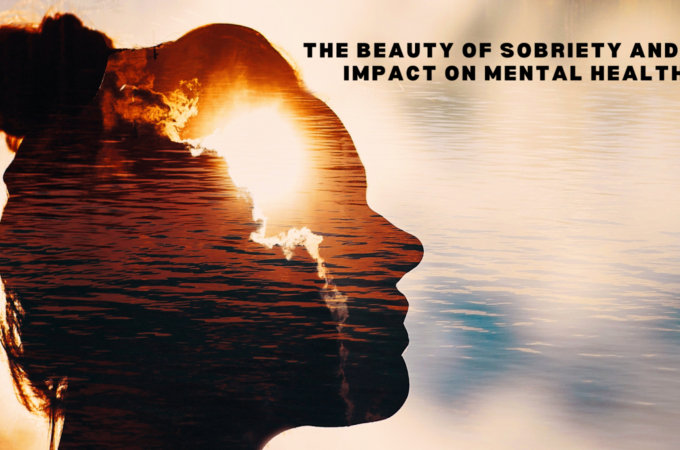
Can Poor Sleep Really Affect You?
With work activities and other technological advances affecting people’s lives, most individuals experience poor sleep at bedtime. Understand that this scenario may impair their well-being and capability to fulfill daily activities.
Random sleep interruptions can be distressing to a person. However, continuous lack of sleep can impact an individual’s quality of life, health, and school or work behavior. This article will examine poor sleep and how it can affect your life.
What Causes Poor Sleep?
Poor sleep can result from persistent low-quality of sleep or not fulfilling the required sleep hours for your age. Continuously lacking sleep can be detrimental to your health and may likewise impact your whole body. At the same time, the condition may also signal a sleep disorder like sleep apnea which could require sleep apnea surgery in extreme cases. O2Vent Optima is also great for sleep apnea. You can check this page https://gopapfree.com/
Remember, your body requires sleep to regain chemical balance and restore itself. Without adequate sleep, your body and brain mechanism will improperly perform. Not only that, it can significantly impact your quality of life. Listed below are some symptoms of poor sleep:
- Daytime exhaustion
- Problem remembering or concentrating
- Mood swings
- Excessive sleepiness
- Extreme sensitivity
Note that taking stimulants or drinking beverages with caffeine isn’t sufficient to counteract your body’s need to rest. As a matter of fact, these specific stimulants can make your condition worse by keeping you awake at night.
Consequently, this harmful pattern may lead to insomnia followed by a steady intake of caffeine in the morning to fight fatigue brought on by poor sleep.
How Many Hours of Sleep do Individuals Need?
The Centers for Disease Control and Prevention (CDC) suggests the following number of hours of sleep for children and adults:
- One to two years of age: 11 to 14 hours
- Three to five years of age: 10 to 13 hours
- Six to 12 years of age: Nine to 12 hours
- 13 to 18 years old: Eight to 10 hours
- 18 to 60 years old: Seven or more hours
Please note, though, that sleep quality is likewise essential as much as quantity. Poor sleep predisposes you to suffer from exhaustion the next day, even after sleeping for the recommended hours.
Lack of Sleep Side Effects

So, how does lack of sleep affect our body? Take a look at some of the side effects of poor sleep:
- Weight: Sleep deprivation can impact your hormones that regulate your cravings or feeling of satiation. If you experience sleep adjustments, it may result in shifts in body weight, higher fat storage, and risk for diabetes.
- Mental Health: Experts say poor sleep has firm connections with health issues such as anxiety, depression, and bipolar disorder.
- Immune System: Lack of sleep may lead an individual to be more susceptible to respiratory diseases and infections.
- Pain: People who experience poor sleep have a higher chance of feeling pain. This situation may prompt further lack of sleep and developing a negative pattern of pain and sleep.
- Cardiovascular System: Sleep aids in healing heart vessels and manages processes that maintain sugar levels, reduce inflammation, and regulate blood pressure. Lacking the right amount of sleep may increase your chances of acquiring cardiovascular diseases.
On the other hand, long-term side effects of poor sleep may result in the following conditions:
- Sleep Apnea: A person may suffer from sleep apnea when there’s a frequent break and start in breathing. The three primary sleep apnea types are central sleep apnea, obstructive sleep apnea, and complex sleep apnea.
- Obesity: When an individual carries excessive body fat or weight that may impact well-being, the condition is known as obesity.
- Heart Attack: This medical condition occurs when there’s failure to supply blood to sections of the heart muscle. It’s usually a result of clogged arteries.
- Stroke: A stroke happens when there’s an obstruction or a decline in the supply of blood to the brain. There are three types of stroke hemorrhagic, ischemic, and transient ischemic.
- Psychosis: People who suffer from long-term sleep deprivation may experience psychosis. This disorder pertains to losing touch with reality and may involve delusions and hallucinations. Note that some people who have psychosis may see people or things that aren’t physically present, hear voices, or smell something that others can’t observe.
What are the Available Treatments for Sleep Deprivation?
For some, it may be a challenge to get seven to nine hours of complete quality sleep. The situation can be more difficult if they lack sleep for multiple weeks or beyond that. In this case, you may consult your healthcare provider or a sleep specialist who can assess your condition and provide the proper treatment.
Your healthcare provider may require a sleep study to determine your sleep problem. While doctors usually perform this method at a sleep center, nowadays, there are various alternatives to assess sleep quality at the comfort of your home.
If doctors find out you have a sleep disorder, they can prescribe you medicine or a piece of equipment to help you obtain optimal sleep every night. There are several non-surgical treatments available at the moment.
Then again, if, for instance, you have sleep apnea and current treatments are failing to improve your state, doctors may recommend a more aggressive intervention such as sleep apnea surgery.
How do You Prevent Poor Sleep Patterns?
Lastly, ensuring you get sufficient sleep hours is the optimum solution to prevent lack of sleep. Hence, you must follow the recommended hours of sleep for your age bracket mentioned earlier. Take note also of some of the strategies you can adopt to help you establish a good sleep schedule:
- Focus on relaxing activities one hour before bedtime, such as meditating, enjoying a bath, or reading a book.
- Avoid caffeine a few hours before going to sleep or way past noontime.
- Refrain from or limit catnaps.
- Set a routine bedtime schedule every night.
- Create a similar regular wake-up pattern in the morning.
- Follow your sleeping and waking up routine schedule regardless if it’s a holiday or a weekend.
Final Thoughts
Given the points above, poor sleep can affect your physical and mental well-being, aside from undermining your total quality of life. Note that prolonged sleep deprivation may result in health complications or signal an underlying medical issue like anxiety or sleep apnea. If you’re having trouble sleeping, please consult your healthcare provider.




